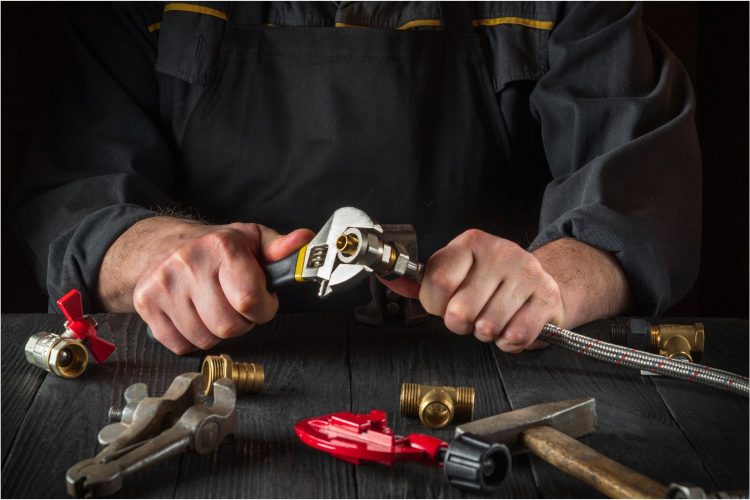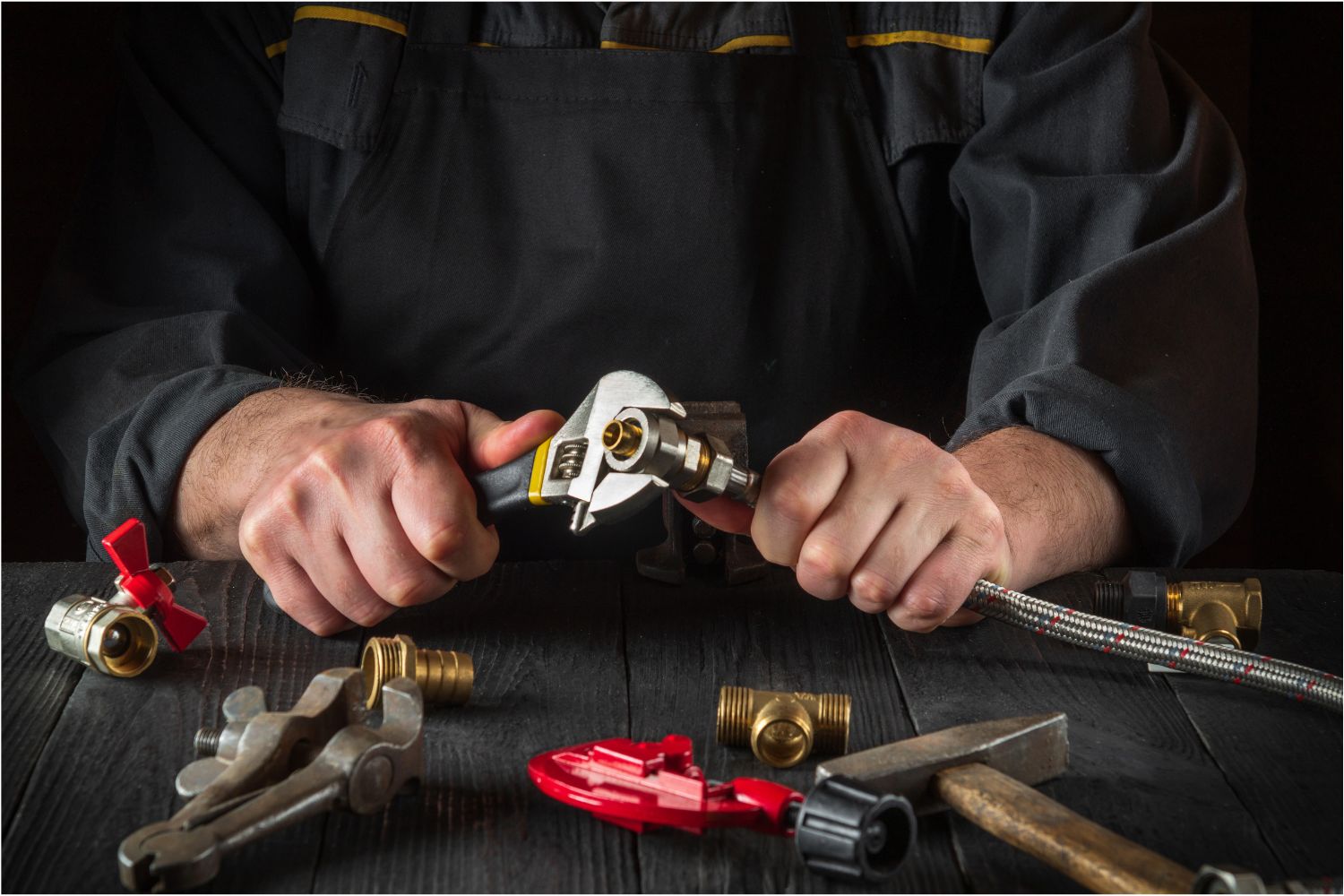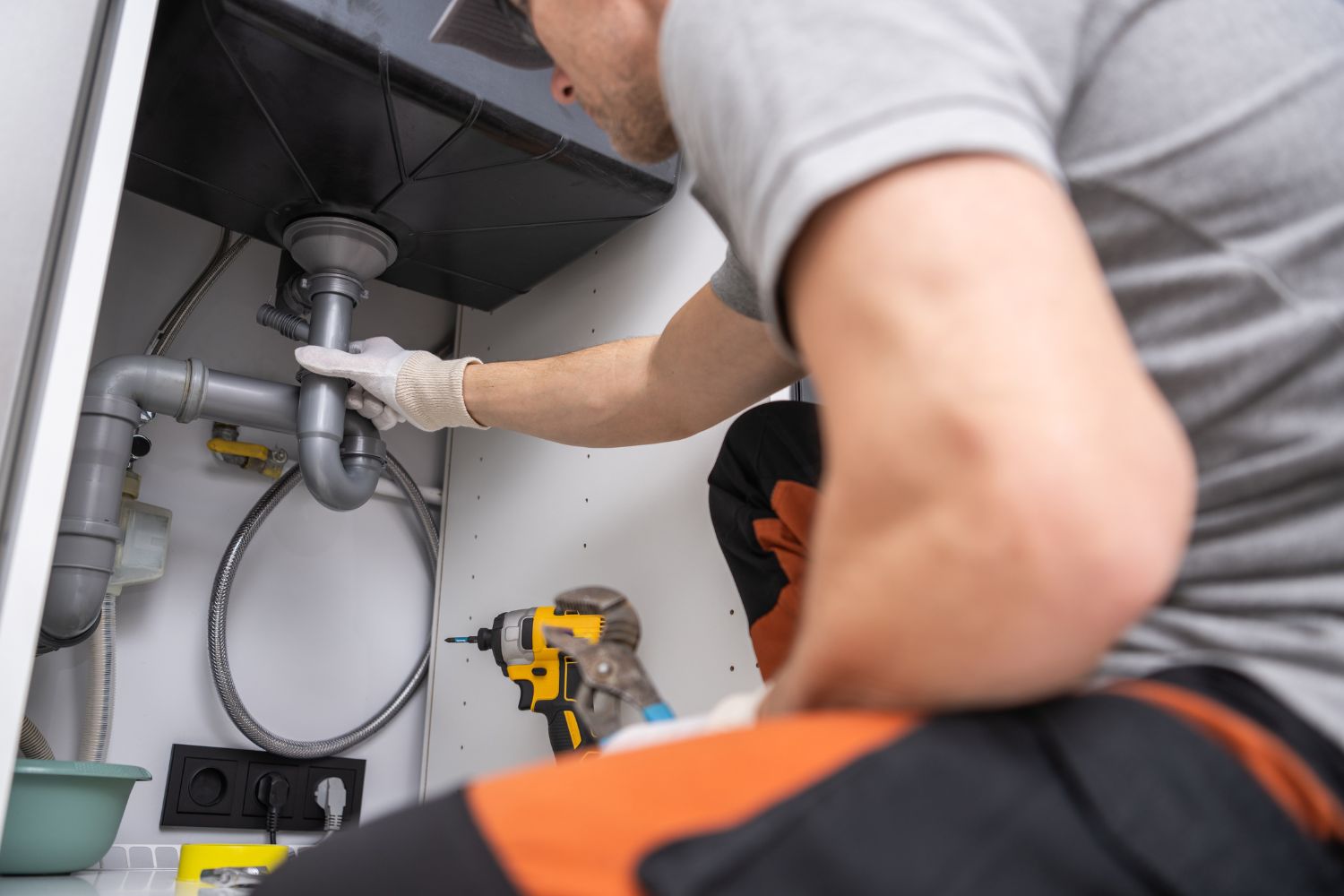Hey, it’s Ted B. White here. If you’re reading this, you’re probably in the process of choosing a washing machine hose, and I know it can feel a bit overwhelming. With so many hose materials, options, and fittings available, it’s easy to feel stuck. But don’t worry—I’m here to guide you through the basics so you can make the right decision for your home.
Choosing the right washing machine hose is more than just a convenience; it’s about ensuring peace of mind and avoiding hose leaks that can lead to costly water damage. So, let’s break down everything you need to know to pick the best hose for your washing machine.
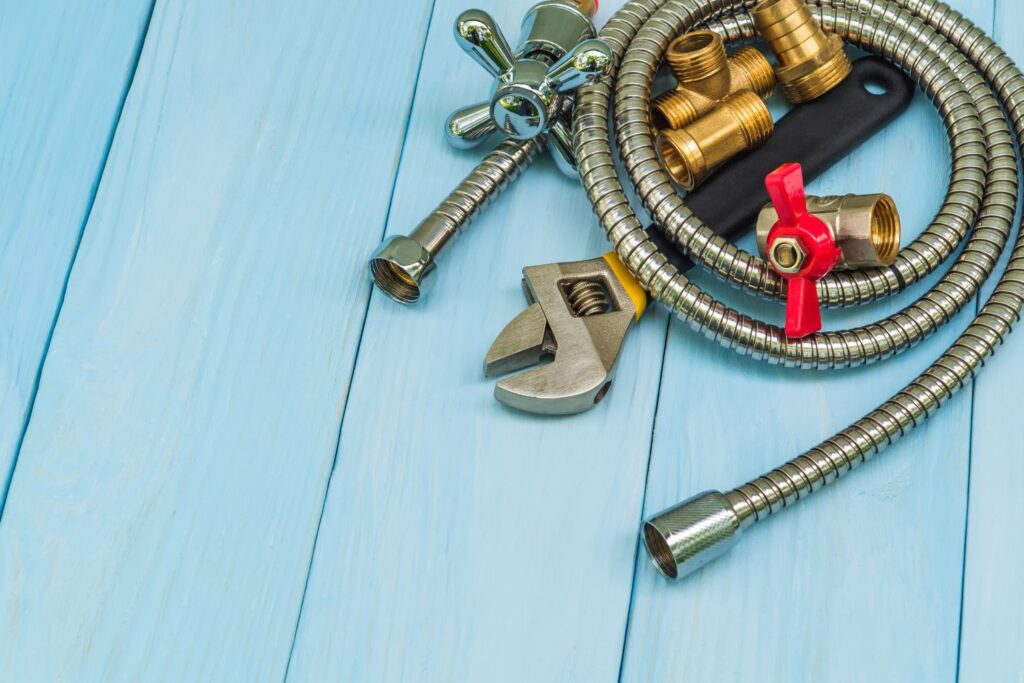
Understanding the Importance of the Right Washing Machine Hose
I can’t emphasize this enough: washing machine hoses are often overlooked but are crucial for preventing bursts and leaks that can flood your laundry room. The supply hose brings in water, while the drain hose carries it out after your wash cycle. This guide focuses mainly on the supply hose, as it’s the one most prone to issues like hose leaks or bursting.
When you choose the right hose, you’re preventing damage not only to your washing machine but to your entire laundry room. The right hose materials and hose length will make all the difference in the long run.
Types of Washing Machine Hoses: Which One Is Best for You?
There are several types of washing machine hoses to choose from, each with different designs, materials, and use cases. Depending on your home’s needs, one might work better than the others.
Rubber Washing Machine Hoses
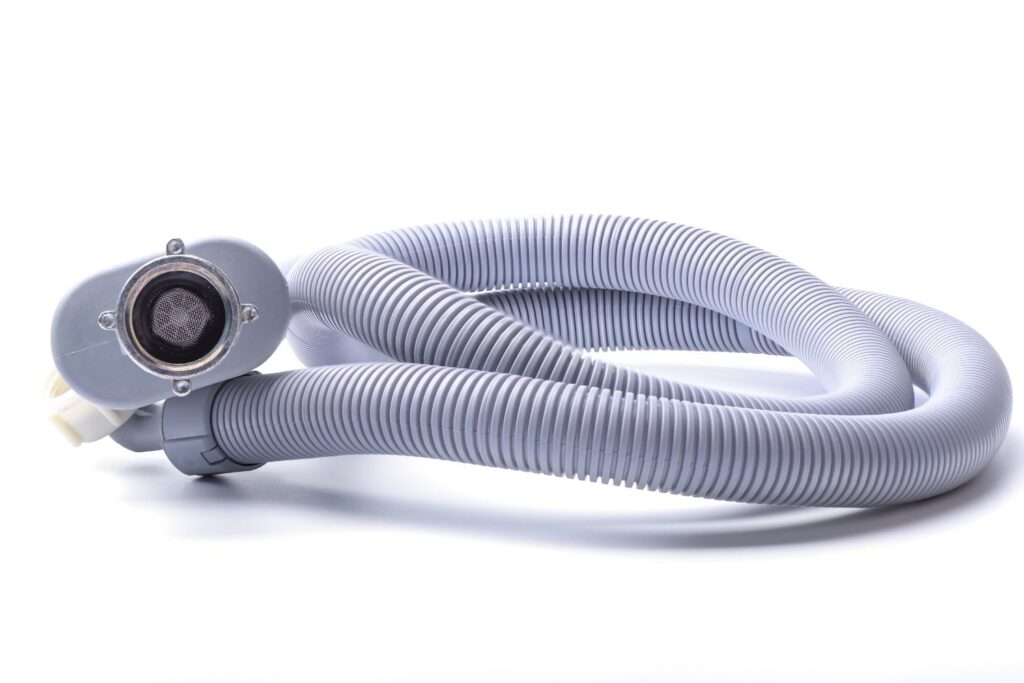
Rubber hoses are the most affordable option and widely available. They’re flexible and easy to install, making them a common choice for many homeowners. However, rubber hoses can degrade over time, especially under high water pressure or when exposed to temperature extremes.
Pros:
- Affordable, which makes them a popular choice for homeowners.
- Flexible and easy to install in tight spaces.
- Works well for household applications with lower pressure.
Cons:
- Prone to cracks and bulges, especially with extended use.
- Not as durable as other materials, so replacement is needed more often.
Best For: Rubber hoses are fine for low-pressure situations or if you need an affordable option for temporary setups. However, regular inspection is crucial to prevent hose leaks.
Reinforced Rubber Washing Machine Hoses
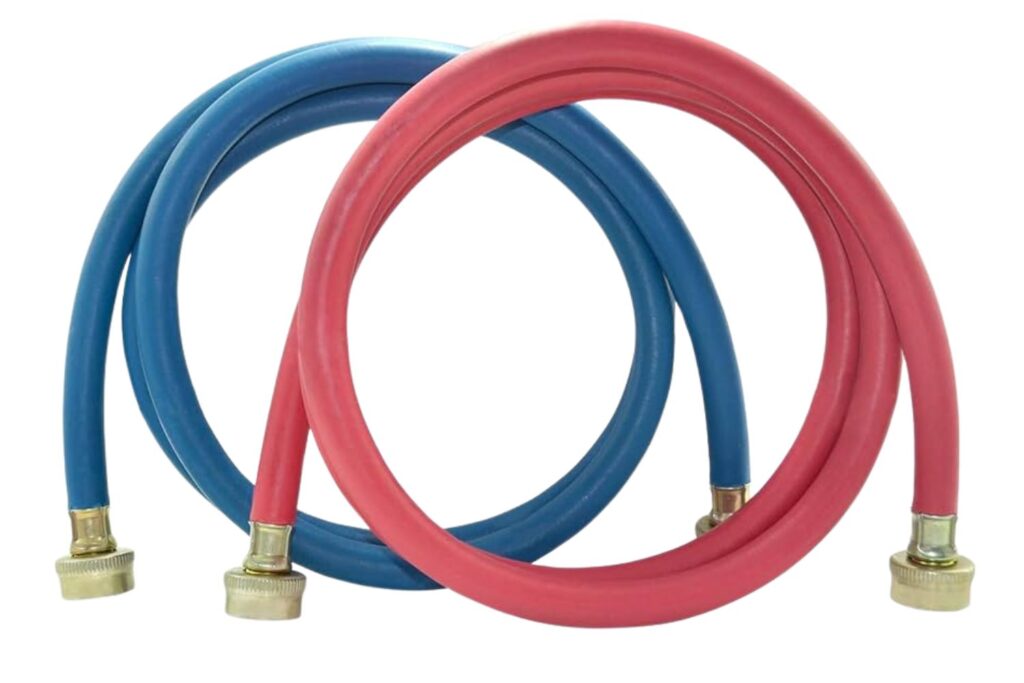
If you want something more durable than standard rubber hoses, reinforced rubber hoses are a step up. These hoses are reinforced with a polyester or rayon mesh, providing added strength and resistance to wear and tear.
Pros:
- More durable than basic rubber hoses.
- Affordable while offering longer longevity.
- Resistant to kinks, which is a common issue with regular rubber hoses.
Cons:
- Still prone to wear over time, though at a slower rate.
- Regular maintenance is still required.
Best For: Reinforced rubber hoses are a great choice for medium-pressure household applications where affordability and durability are key priorities. If you’re looking for a hose that will last a bit longer without breaking the bank, this is your go-to.
Stainless Steel Braided Washing Machine Hoses
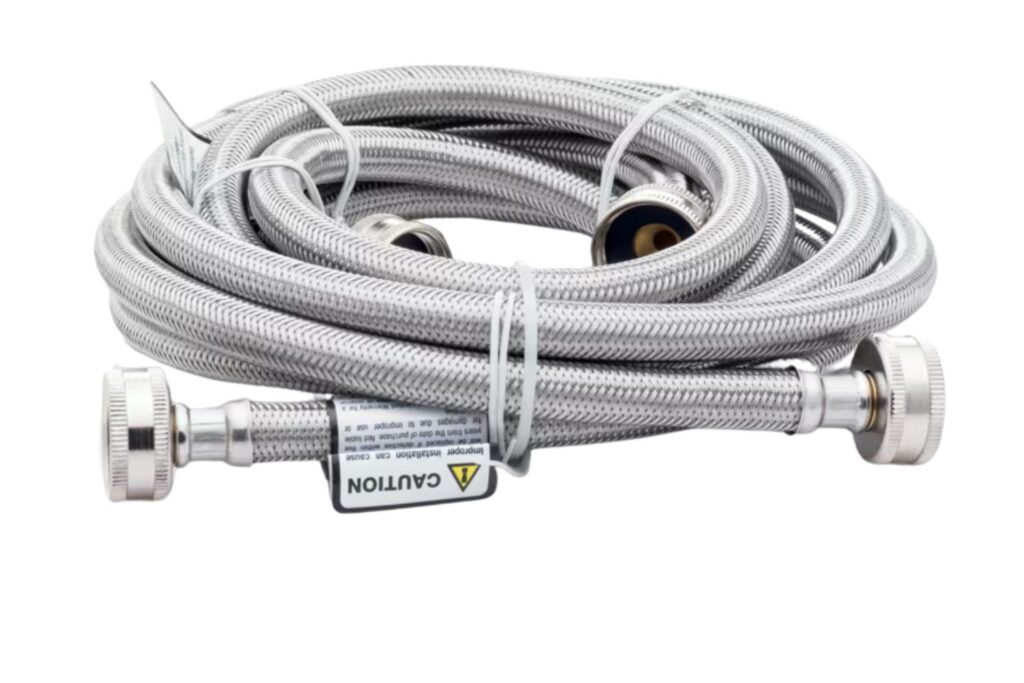
For maximum durability and long-term protection, stainless steel braided hoses are the best option. These hoses are constructed with an inner rubber tube surrounded by a stainless steel jacket, making them resistant to punctures, kinks, and rust.
Pros:
- Extremely durable and long-lasting.
- Resistant to kinking, corrosion, and bursts.
- Perfect for high-pressure situations or homes with frequent water supply fluctuations.
Cons:
- Higher cost compared to other hoses.
- Less flexible, which can make installation a bit more challenging, especially in tight spots.
Best For: If you want a hose that offers peace of mind and durability, the stainless steel braided hose is the best option. It’s built to handle high-pressure water systems, prevent hose bursts, and last for years.
Choosing the Right Length and Fittings for Your Washing Machine Hose
Once you’ve chosen the hose material, the next thing to consider is the hose length and the connection type. The correct hose length will ensure that your hose isn’t too short, which could cause tension, or too long, leading to slack and potential kinks.
Length Options:
- 4–6 feet is generally sufficient for most washing machine setups, especially if your machine is located close to the wall.
- 12 feet hoses are available for setups that need extra reach, but keep in mind that longer hoses may create more opportunities for slack or kinking.
Fittings:
Most washing machine hoses come with standard ¾-inch FGH (female garden hose) fittings, which are compatible with most washing machines. You’ll also want to check whether the hose has elbow fittings—these 90-degree bends are great for tight spaces and can help prevent the hose from kinking.
How to Prevent Leaks and Burst Hoses
Once you have your hose installed, it’s essential to keep an eye on it to prevent hose leaks and bursting. Here are some tips to extend the life of your washing machine hoses and avoid major issues:
- Regular Inspection: Inspect your hoses for cracks, bulges, and signs of wear at least once every few months.
- Replace Old Hoses: Even if they look fine, consider replacing your hoses every 3 to 5 years to reduce the risk of hose leaks.
- Check the Washers: Rubber washers at the end of your hose play a key role in preventing leaks. Make sure they are intact and replace them if necessary.
- Proper Installation: When installing your hose, make sure it fits snugly and doesn’t have any twists. Slowly turn the water supply on to check for any misalignments or leaks before you use your washing machine.
How Long Do Washing Machine Hoses Last?
Most experts recommend replacing your washing machine hoses every 3 to 5 years to ensure peace of mind and durability. Even the most durable stainless steel braided hoses can wear down over time. Regular inspection and replacement will help protect your laundry room from unexpected water damage.
Final Thoughts: Making the Right Choice for Your Home
Choosing the right washing machine hose is about making a decision that fits your needs and keeps your home safe from potential water damage. Whether you go for an affordable rubber hose or invest in a stainless steel braided hose, the key is to prioritize durability, compatibility, and the right hose length for your setup.
At MyBoisePlumbers, we’ve been helping homeowners with all their plumbing needs for years, and we’re here to provide the expert guidance you need. If you’re still unsure about which hose is best for your washing machine, give me a call—I’d be happy to help!

